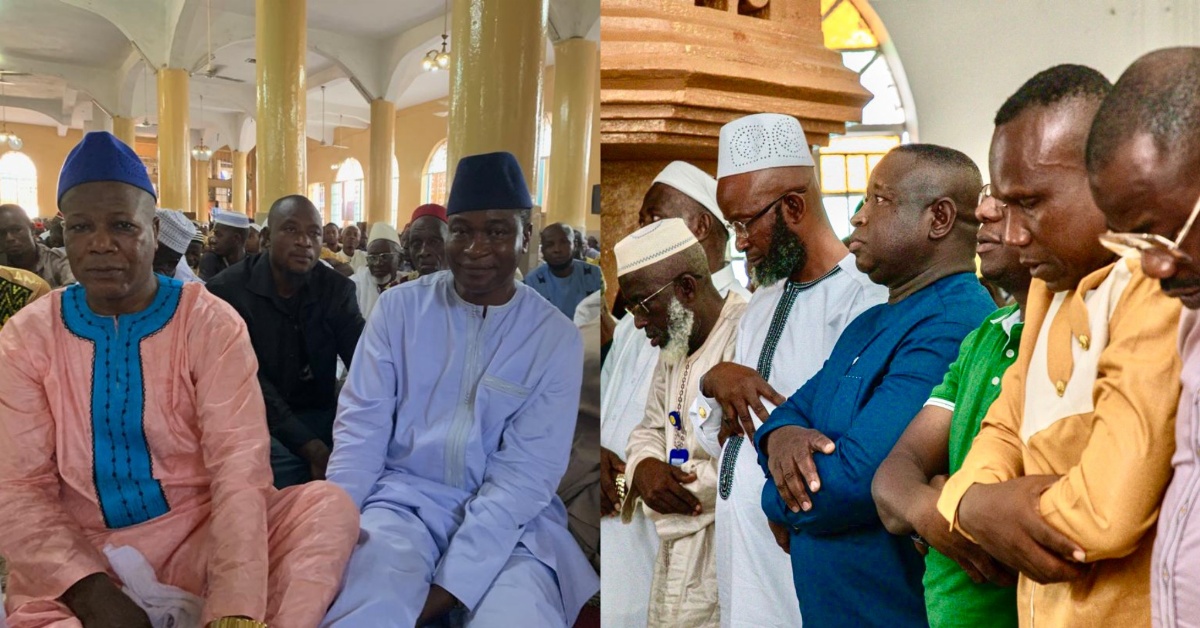It has become increasingly common for politicians in Sierra Leone to use mosques as a platform to spread their campaign messages. Sierra Leone has a large Muslim population and a diverse religious history. However, this growing trend of politicians using mosques to win votes has sparked mixed reactions.
During election periods, it is not uncommon to see politicians accompanied by their supporters, holding microphones and delivering speeches in front of worshipers in mosques. Some politicians see this as a way of gaining the trust and support of the Muslim community and showing respect for their religious practices. However, others criticize this tactic, arguing that it violates the sanctity of the mosque and politicizes religion.
In recent times, there have been instances of Sierra Leonean politicians utilizing mosques as a platform for political messaging. One example of this is the ruling Sierra Leone People’s Party (SLPP) Mayoral candidate, Mohamed Gento Kamara, who faced widespread backlash from Sierra Leoneans last month after he made a religiously bigoted statement during a speech in a mosque in Freetown. The First Lady, Fatima Bio, has also been criticized by some Sierra Leoneans after images of her addressing worshippers in a mosque in Kenema surfaced online. Even President Julius Maada Bio had engagement with worshippers at the same mosque.

In a similar vein, the new strongman of the main opposition, All People’s Congress (APC), Sheik Mohamed Kamara, also known as “Jagaban,” has been using the Islamic faith to gather supporters. The APC flag bearer, Samura Kamara, has also been spotted engaging with supporters in mosques across the country.

One of the main concerns with this trend is that it can create divisions within the Muslim community and lead to the politicization of religion.
Some religious leaders have expressed their worries about the use of mosques for political purposes, arguing that they should be a place of worship and not a venue for political campaigns.
Critics have also pointed out that politicians should focus on delivering tangible development to communities, rather than using religion as a tool to gain votes. Instead of exploiting divisions for their own, politicians should work towards promoting unity and harmony within the country.
Despite the criticisms, some politicians and their supporters argue that the use of mosques for political campaigns is a way of engaging with the Muslim community, which is an essential part of Sierra Leone’s population. They argue that it should not be seen as a violation of the sanctity of the mosque, but rather as a way of showing respect for the religious practices of the Muslim community.
As Sierra Leone approaches another election cycle, the use of mosques for political campaigns remains a controversial topic. While some see it as a way of engaging with the Muslim community and gaining their trust and support, others argue that it is a violation of the sanctity of the mosque and the politicization of religion. It remains to be seen whether this trend will continue or if political leaders will find other ways to engage with the Muslim community.


 Post a comment
Post a comment









Comment(s)
Disclaimer: Comments expressed here do not reflect the opinions of Sierraloaded or any employee thereof.
Be the first to comment